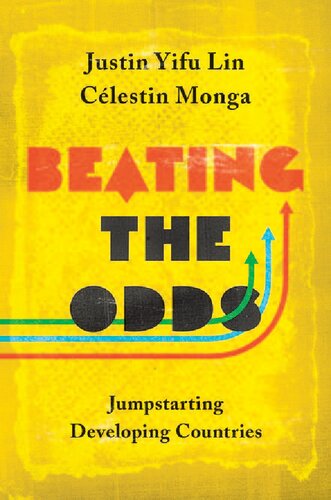

Most ebook files are in PDF format, so you can easily read them using various software such as Foxit Reader or directly on the Google Chrome browser.
Some ebook files are released by publishers in other formats such as .awz, .mobi, .epub, .fb2, etc. You may need to install specific software to read these formats on mobile/PC, such as Calibre.
Please read the tutorial at this link. https://ebooknice.com/page/post?id=faq
We offer FREE conversion to the popular formats you request; however, this may take some time. Therefore, right after payment, please email us, and we will try to provide the service as quickly as possible.
For some exceptional file formats or broken links (if any), please refrain from opening any disputes. Instead, email us first, and we will try to assist within a maximum of 6 hours.
EbookNice Team

Status:
Available5.0
38 reviewsHow poor countries can ignite economic growth without waiting for global action or the creation of ideal local conditions
Contrary to conventional wisdom, countries that ignite a process of rapid economic growth almost always do so while lacking what experts say are the essential preconditions for development, such as good infrastructure and institutions. In Beating the Odds, two of the world's leading development economists begin with this paradox to explain what is wrong with mainstream development thinking―and to offer a practical blueprint for moving poor countries out of the low-income trap regardless of their circumstances.
Justin Yifu Lin, the former chief economist of the World Bank, and Célestin Monga, the chief economist of the African Development Bank, propose a development strategy that encourages poor countries to leap directly into the global economy by building industrial parks and export-processing zones linked to global markets. Countries can leverage these zones to attract light manufacturing from more advanced economies, as East Asian countries did in the 1960s and China did in the 1980s. By attracting foreign investment and firms, poor countries can improve their trade logistics, increase the knowledge and skills of local entrepreneurs, gain the confidence of international buyers, and gradually make local firms competitive. This strategy is already being used with great success in Vietnam, Cambodia, Bangladesh, Mauritius, Ethiopia, Rwanda, and other countries. And the strategy need not be limited to traditional manufacturing but can also include agriculture, the service sector, and other activities.
Beating the Odds shows how poor countries can ignite growth without waiting for global action or the creation of ideal local conditions.